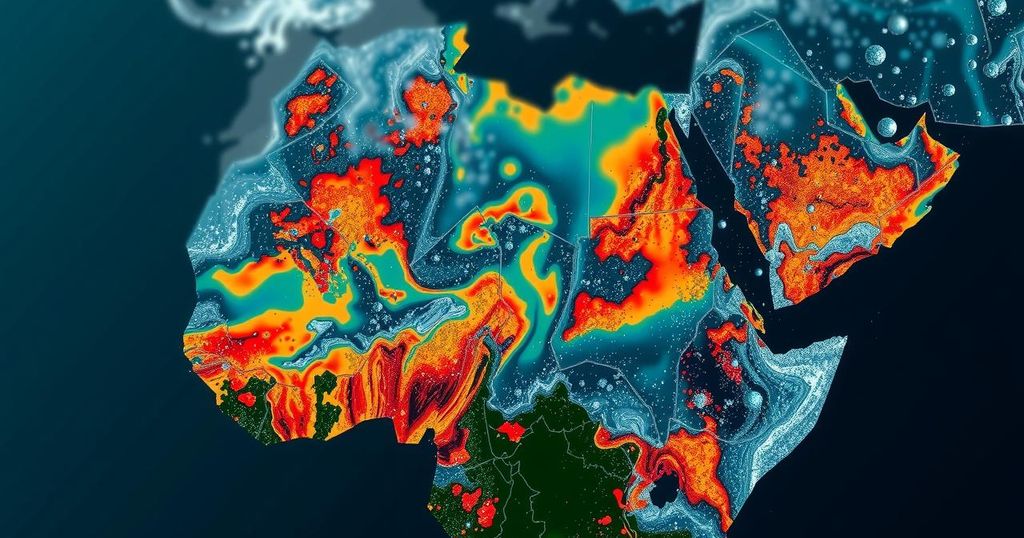International scientists have concluded that human-caused climate change intensified recent catastrophic rains and floods in several African nations, leading to significant loss of life and displacement. They warn that if global warming persists, such severe weather events may become regular occurrences in the future. Calls for substantial financial contributions from developed countries to aid affected regions are critical, especially in light of imminent climate negotiations.
Recent months have witnessed catastrophic rains that resulted in severe flooding across several African nations, including Cameroon, Chad, Niger, Nigeria, and Sudan. A coalition of international scientists has concluded that these extreme weather events were exacerbated by anthropogenic climate change. The analysis from World Weather Attribution (WWA) indicated that global warming has intensified seasonal rainfall in 2023 by approximately 5 to 20% throughout the Niger and Lake Chad basins. Furthermore, the scientists warned that if the current trajectory of global warming persists, such severe rainfall events could become commonplace in the future. Izidine Pinto, a researcher at the Royal Netherlands Meteorological Institute, noted that “spells of heavy summer rainfall have become the new normal in Sudan, Nigeria, Niger, Cameroon and Chad.” The consequences of this year’s floods have been devastating, resulting in approximately 1,500 fatalities and displacing over one million individuals in West and Central Africa, as reported by the United Nations Office for the Coordination of Humanitarian Affairs (OCHA). The intense rainfall has also led to the failure of dams in Nigeria and Sudan, compounding the humanitarian crisis. According to WWA, if global temperatures rise by 2 degrees Celsius (3.6 degrees Fahrenheit)—a possibility by the 2050s—the affected regions are likely to experience such dramatic downpours annually. The researchers have urged for increased investment in early warning systems and enhancements to dam infrastructure to mitigate future disasters. Joyce Kimutai, a researcher at the Centre for Environmental Policy at Imperial College London, emphasized: “Africa has contributed a tiny amount of carbon emissions globally, but is being hit the hardest by extreme weather,” underscoring the urgency for rich nations to provide “meaningful finance” at the upcoming COP29 climate talks in November 2023 to assist affected regions.
The increasing frequency and severity of extreme weather events in Africa have drawn attention to the implications of climate change on the continent. Although Africa contributes minimally to global carbon emissions, it is disproportionately affected by the consequences of climate change, including extreme rainfall and flooding. Recent studies highlight the correlation between human-induced climate change and the intensification of seasonal weather patterns, particularly in vulnerable regions like West and Central Africa. This context is imperative for understanding the ongoing humanitarian crises resulting from climate extremes and the call for global support to develop resilience against future disasters.
In summary, research conducted by World Weather Attribution illustrates a direct link between human-induced climate change and the intensification of rains leading to flooding in West and Central Africa. With the alarming statistics of loss of life and displacement, there is an urgent need for improved infrastructure and proactive measures to address the impacts of climate change. Furthermore, the responsibility lies with affluent nations to support climate adaptation efforts in Africa as highlighted by researchers. It is critical that the proceedings of the upcoming COP29 climate talks yield substantial financial commitments to aid affected regions.
Original Source: kfgo.com







